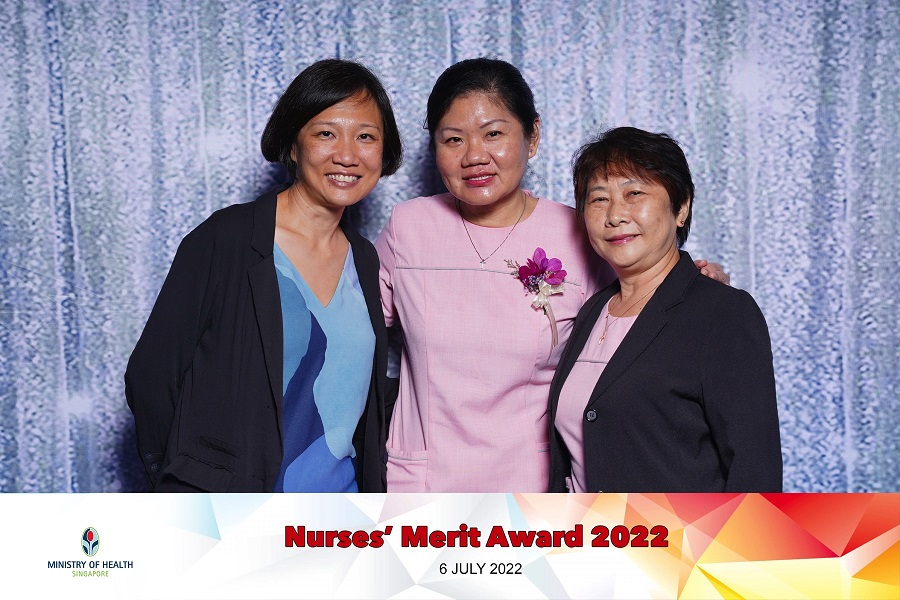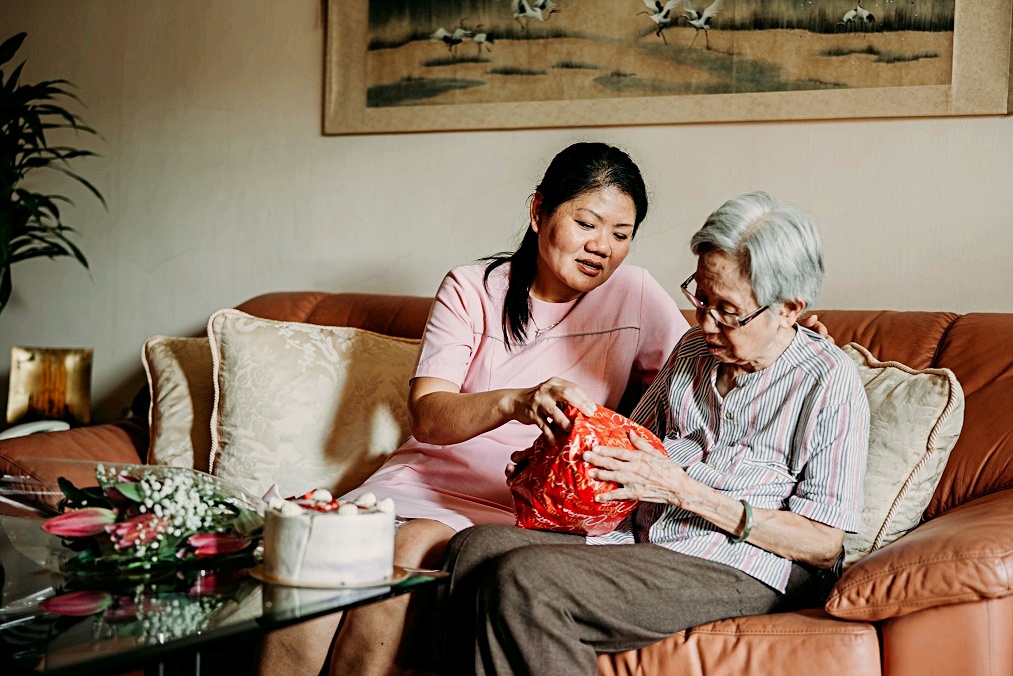
Close


HCA Nurse Manager Ng Wan Ru wears numerous hats – from clinician to manager and mentor – but she handles each role proficiently, always with utmost sensitivity and humility.
In this Q&A, Wan Ru shares more about her journey in nursing and philosophy towards life.
1. What do you do as an Advanced Practice Nurse (APN)?
I am both a clinician and a mentor. In my capacity as the former, I provide care to patients and families. My role as the latter entails a lot of teaching work, which includes holding lectures and talks, internally and externally, to create greater awareness of hospice and palliative care.
These external talks are targeted at several different groups, including nurses in the hospitals, students in healthcare disciplines and the general public. I also help to facilitate clinical visits for these students, who come to learn more about HCA’s work.
I have also had the privilege of participating in discussions at the ministry level, playing a part in shaping the competency framework for palliative nursing.
2. What are some of the more complex cases you have handled?
Each case is unique and presents different challenges. Some caregivers may have existing issues and express worrying tendencies, as they struggle to cope with caring for their loved ones. In such cases, we have to support them very closely, tapping onto the expertise of the multidisciplinary team.
We have also had patients who had ongoing issues with drug abuse. It is important to strike a delicate balance, to achieve good symptom management for patients, while also being vigilant to ensure that controlled drugs are not misused.
In one of the terminal discharge cases we handled, our patient wanted to return to her hometown in Malaysia. We helped to coordinate the logistics of the journey, from the 10-hour ambulance trip to liaising with a local hospice in her hometown, to ensure continuity of care.
3. Over the course of your nursing career, how has your philosophy towards life, and your profession, evolved?
Working in hospice care has transformed my life. I have learnt to treasure my loved ones and friends even more. Disease can hit anyone at any time, regardless of age. It is important to live life to the fullest and to plan ahead for our own end-of-life care.
I feel blessed whenever I go home and I’ve learnt to be more understanding towards my parents too.
On the professional front, I am thankful for the opportunities HCA has given me, in growing my clinical knowledge. I hope to be a good mentor to other nurses and to play my part in creating greater awareness of palliative nursing.

4. What do you find most rewarding about your work?
It is a privilege and honour for me to be part of our patients’ journeys, and to listen to their stories and struggles. To be able to provide compassionate care and to help patients maintain personal dignity at the end of life, mean a lot to me.
Having the opportunity to fulfil our patients’ wishes, no matter how insignificant it may seem to others, is most rewarding for me.
5. Do you have any advice to share with individuals who are thinking of exploring a career in nursing?
Nursing is not a profession for all, but if you have the right attitude, the journey is truly life-transforming. Our patients are our best teachers – they enrich our lives and impart valuable lessons on life and death.
You may witness a fair amount of suffering, but you will also see a lot of resilience, love and meaning, as patients make sense of what is happening to them.
Many of us are very honoured to serve, no matter the disease trajectory.
The landscape of nursing has changed drastically over the years – find the specialty that interests you, and you will have different career opportunities as you deepen your knowledge.